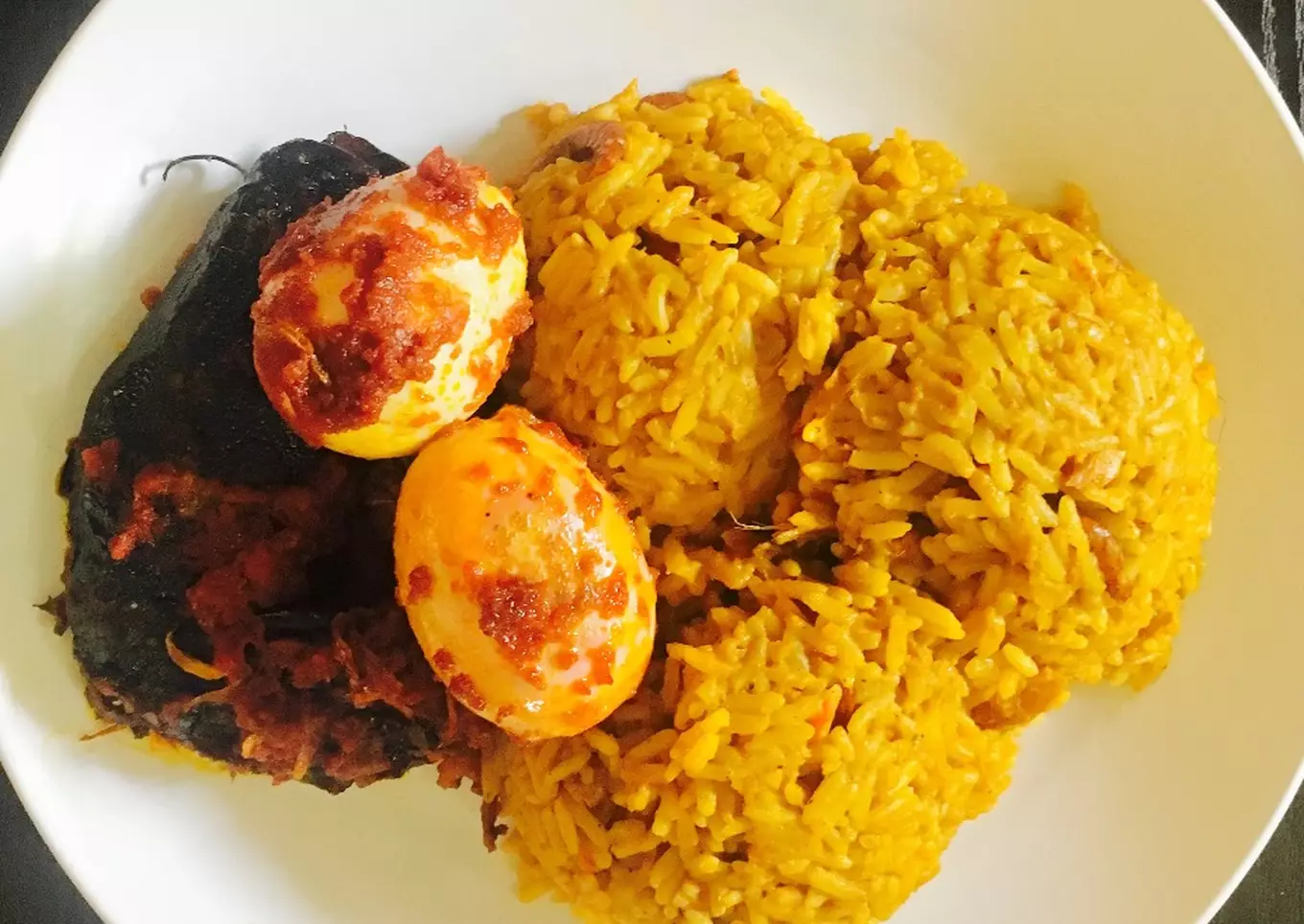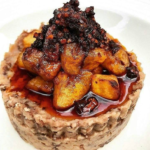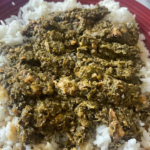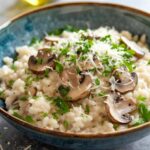Nigeria, a country known for its rich cultural diversity, boasts a vibrant culinary scene that showcases a wide array of flavors and dishes. Among the many delightful delicacies that have captured the hearts and taste buds of Nigerians and food enthusiasts worldwide, Banga Rice stands out as a creamy and indulgent palm nut rice dish. This traditional Nigerian dish combines the goodness of palm fruit extract with aromatic spices and rice, resulting in a flavor-packed and satisfying meal.
Banga Rice, also known as Ofe Akwu, is believed to have originated among the Igbo people of southeastern Nigeria. It takes its name from the main ingredient, “banga” or palm fruit extract, which serves as the base for the dish. The palm fruit extract is made by boiling ripe palm fruits until they soften, then pounding or blending them to extract the thick, creamy juice.
The process of making Banga Rice involves simmering the palm fruit extract with a variety of spices and seasonings, such as onions, garlic, ginger, and traditional Nigerian spices like uziza or ehuru. These aromatic ingredients infuse the palm fruit extract with a depth of flavor, creating a rich and fragrant sauce that forms the backbone of the dish.
To complete the dish, parboiled rice is added to the flavorful palm nut sauce, allowing the rice grains to absorb the creamy goodness and aromatic flavors. As the rice cooks, it soaks up the essence of the palm fruit extract, resulting in a delightful combination of creamy texture and mouthwatering taste.
The creamy goodness of Banga Rice is a testament to the richness and versatility of Nigerian cuisine. The palm fruit extract provides a luscious and velvety texture to the dish, while the spices and seasonings add layers of complexity to the flavor profile. The result is a comforting and satisfying meal that is as delicious as it is visually appealing.
Banga Rice is often enjoyed as a main course, served with a variety of accompaniments. It pairs well with protein-rich ingredients such as beef, chicken, fish, or shrimp, which can be cooked within the sauce to create a hearty and complete meal. The dish is commonly served at festive occasions, family gatherings, and cultural celebrations, reflecting the significance of food in Nigerian culture and hospitality.
Beyond its culinary appeal, Banga Rice carries cultural significance in Nigeria. It represents the deep-rooted traditions and culinary heritage of the Igbo people and serves as a reminder of the importance of palm fruits in Nigerian agriculture and cuisine. The dish showcases the resourcefulness of Nigerians, who have utilized the abundant palm fruit resources to create a dish that is both nourishing and delicious.
In recent years, Nigerian cuisine has gained popularity worldwide, with Nigerian restaurants and food enthusiasts showcasing the flavors and diversity of the country’s culinary offerings. Banga Rice, with its creamy goodness and aromatic spices, has become a favorite among those seeking to experience the richness of Nigerian cuisine.
If you’re longing for a taste of Nigeria and a comforting, flavorful meal, Banga Rice is an excellent choice. Its creamy texture, combined with the aromatic spices and rice, offers a culinary experience that is both indulgent and satisfying. So, immerse yourself in the creamy goodness of Nigerian Banga Rice and savor the flavors that reflect the heart and soul of Nigerian cuisine.








